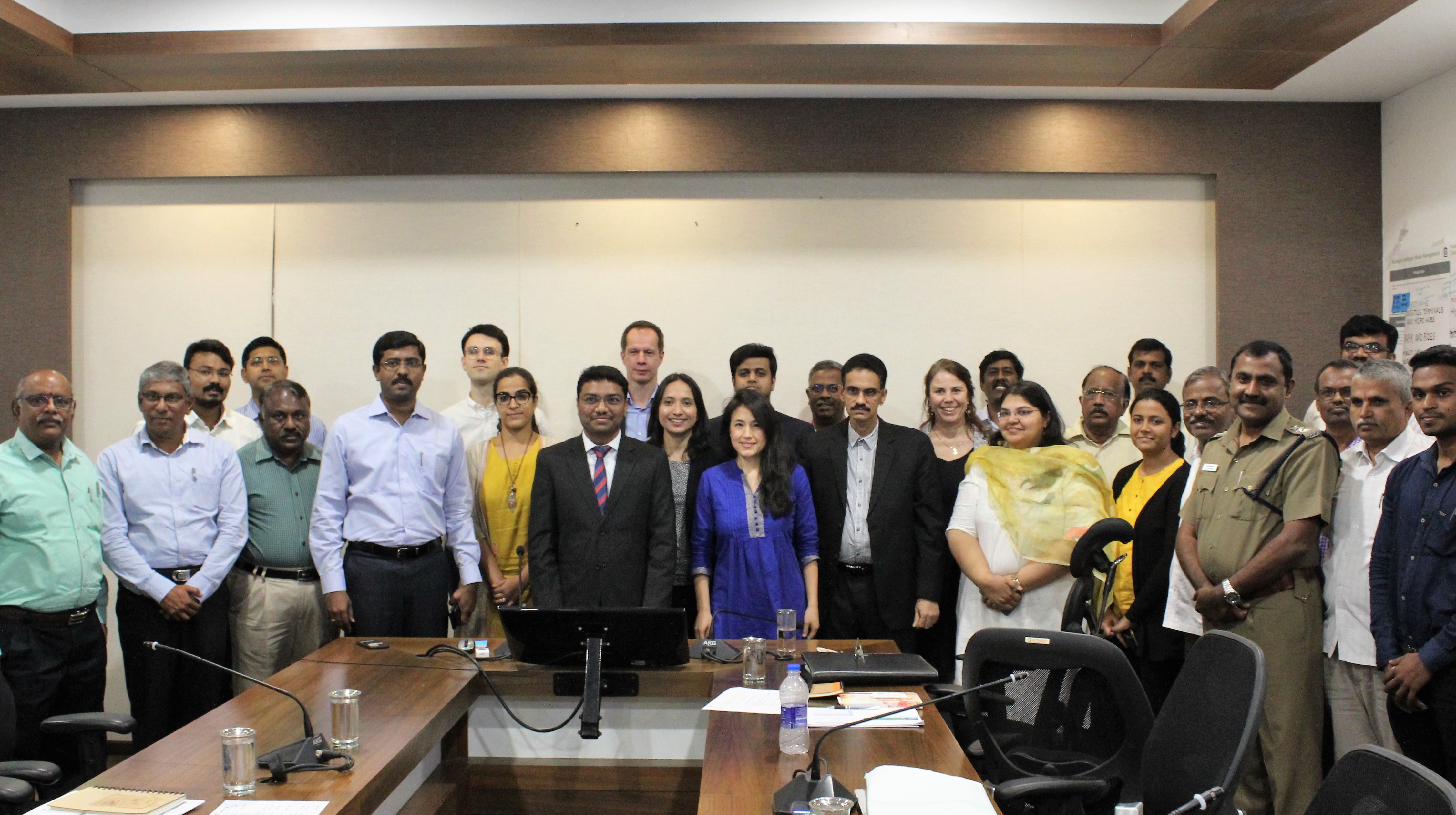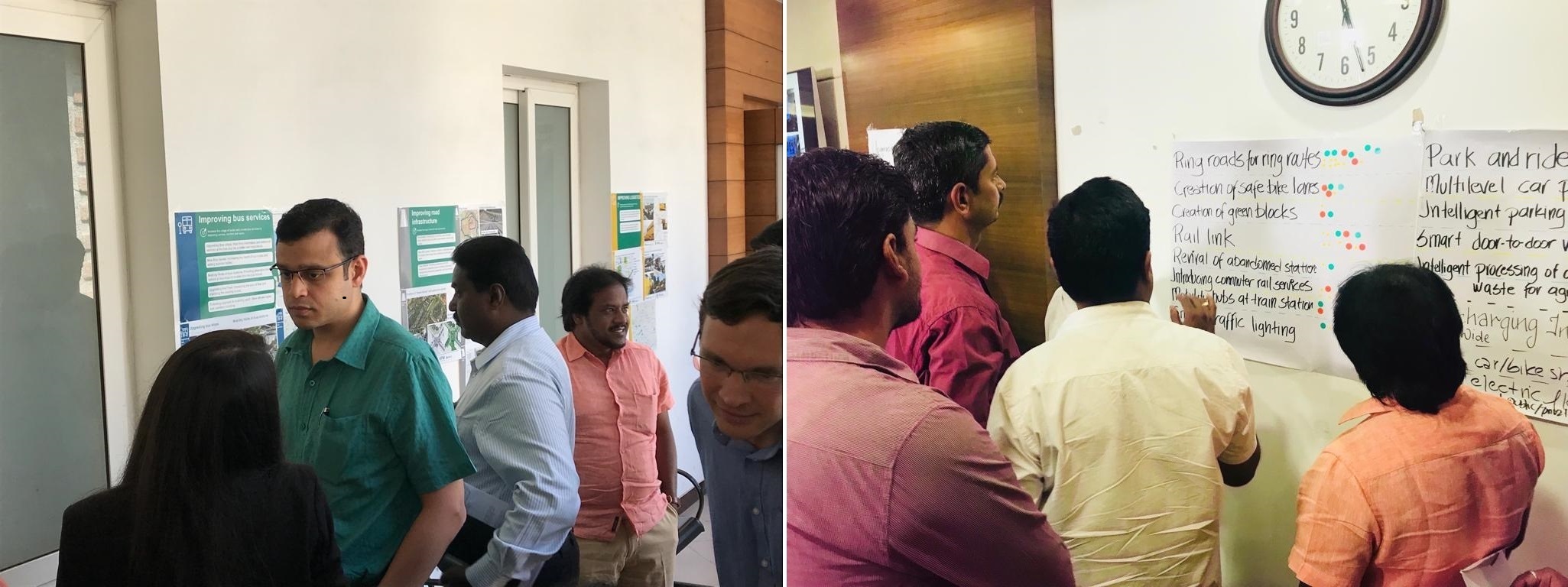
© Fraunhofer IAO & Vladyslav Latypov

© Fraunhofer IAO & Vladyslav Latypov
Coimbatore is known in India for its forward-thinking policies and efforts towards becoming a smart city. The Smart City Concept Plan for Coimbatore was launched in 2015 to design the city of the future and improve its citizens’ quality of life. In strategic cooperation with the KfW banking group, the Morgenstadt Initiative co-designed a project for supporting the city of Coimbatore in the development of a roadmap for sustainable urban mobility. The project was brought towards realization in a joint effort between the Coimbatore Municipal Corporation, Coimbatore Smart City Limited, KfW Group, industry and national strategic actors. The results of the Mobility City Lab constitute an integrated set of innovative mobility projects tailored to Coimbatore´s unique needs and are meant to support the city in addressing its specific challenges in the area of mobility.
 © Coimbatore City Municipal Corporation
© Coimbatore City Municipal Corporation
The Morgenstadt City Lab Framework encompasses different levels of analysis, such as the assessment of indicators and action fields. Given that most of the indicators and action fields originally referred to highly developed cities with rather advanced infrastructures and technologies, the preparation phase in Coimbatore was used to adapt the framework to the local context.
During two weeks of on-site assessment as well as in internal co-creating sessions with the local team in Coimbatore, a total of 32 project ideas were developed together with multiple and diverse interviewees. More than 40 representatives from the municipality, private companies as BOSCH India, Clancor Technologies, the Lorry Owners Association, Jayem Automotives bus operators, universities and KfW representatives participated in the process. The following 10 packaged solutions were validated and further discussed:
Improving bus services: increasing the usage of public and private bus services by improving service through upgrades of the fleet, stations and routes in addition to digitalization of related customer services;
Promoting shared mobility: introducing shared mobility for public and separate institutions in pioneering the transition to environmentally friendly transport options including carsharing, bikesharing and supporting AC infrastructure;
Improving railway services: increasing the usage of trains for inner city commutes and facilitating suburban commuter mobility via introduction of new rail linkages;
Improving road infrastructure: expanding the road infrastructure and creating dedicated infrastructure for promoting public and sustainable transport options such as safe bicycle lanes and „Green Blocks“ for non-motorized movement;
Intelligent parking management: improving parking infrastructure to incentivise use of public and shared services for moving into the city centre and reducing congestion related to parking through the use of intelligent parking systems;
Improving logistics: reducing congestion and pollution caused by logistic operations by revamping the logistic model, introducing last mile delivery services and upgrading new logistic centres;
Intelligent transport management: reducing congestion in the city and maximizing the use of existing infrastructure through the implementation of a smart system to prioritise public transport and reduce commuting time;
Smart solid waste management: upgrading the solid waste collection facilities to reduce air pollution and congestion in the city through the implementation of intelligent processing of organic waste;
Technical solutions: implementing overarching solutions which integrate and support different mobility projects such as the development of a smart application for transport as wells as navigation screens throughout the public transport system;
Smart governance: setting up regulatory norms which support the improvement in overall mobility through various actions such as flexible assigning of traffic lanes, promotion of high occupancy in cars and establishing an authority to coordinate mobility-related activities.

 © Fraunhofer IAO & Vladyslav Latypov
© Fraunhofer IAO & Vladyslav Latypov
Without a doubt, each of the project ideas is relevant to the city context and will play a pivotal role in transforming the city from a mobility perspective. However, each of the projects requires different planning and execution times, has diverse regulatory constraints and varying levels of stakeholder interest. Hence, the project ideas were prioritized to create a roadmap which can serve as a guideline towards uptake and implementation.

© Coimbatore City Municipal Corporation
During the final event, the results from the City Lab analysis and pre-feasibility studies were presented. Around 30 executive-level representatives came together to agree on the next steps for moving towards implementation. Key outcomes of the event included the decision to set up a team with the responsibility of securing financing and implementation of the projects proposed, concrete next steps for further project development and a date for bilateral meetings with KfW for project alignment.
The City Lab methodology with its collaborative methods created a movement in Coimbatore where many actors came together, transformed the city and became an example of innovation for India and the region.
For further information please read the final report.